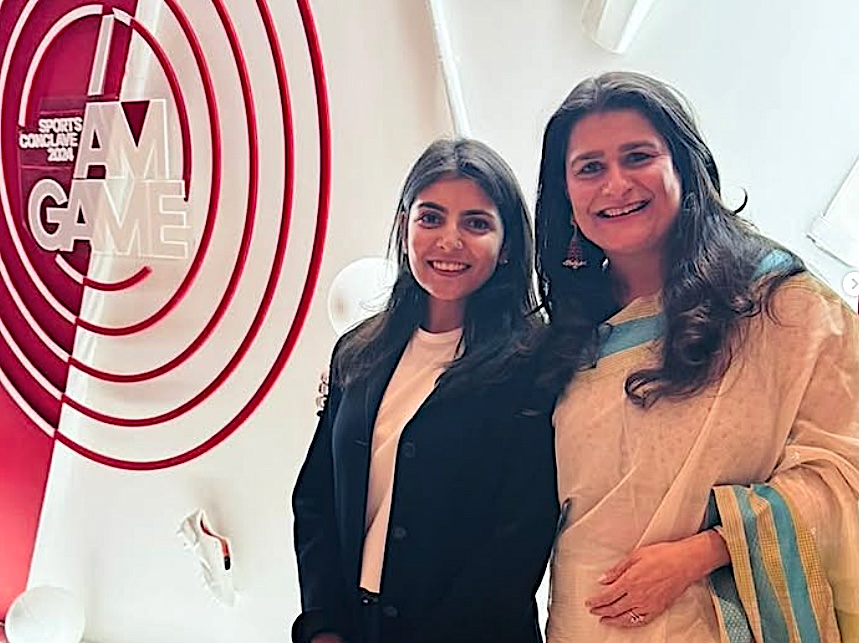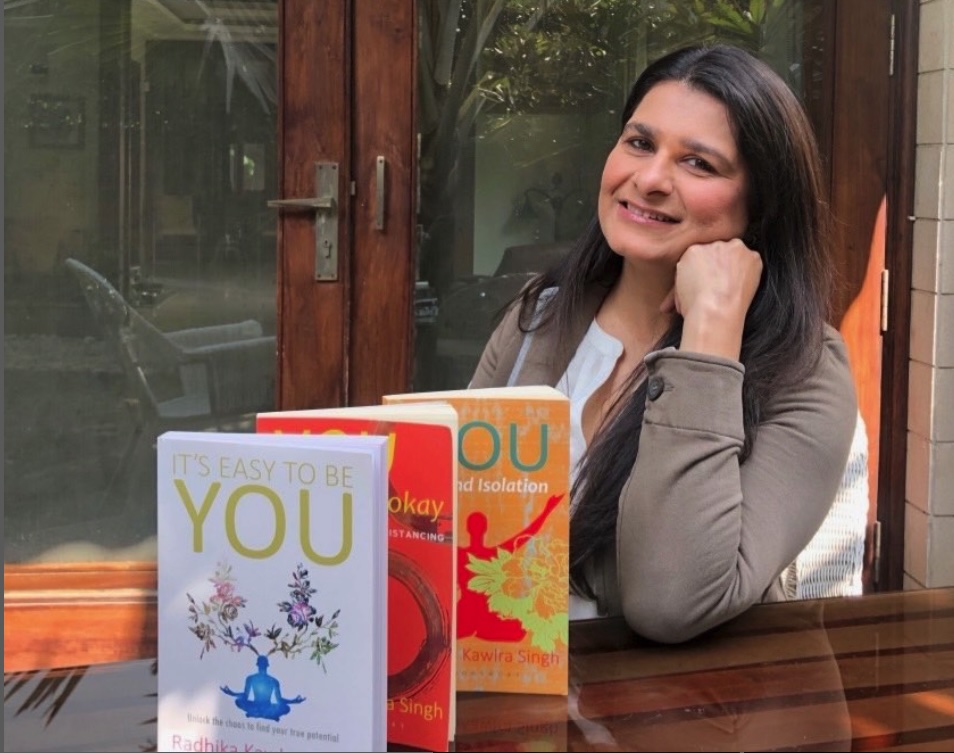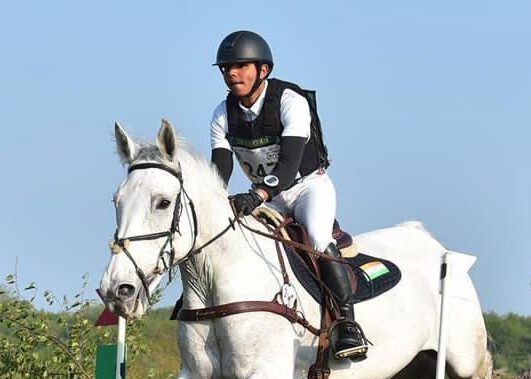Radhika Kawlra Singh, who worked with a number of athletes in the Paris 2024 Olympic Games and Paralympic Games as their mind coach, believes it is time for India to create an honest, integral, and responsible team to help reshape the system, heal wounds, and ensure that public funds are utilised more efficiently.
“Until we shift our focus toward the greater good, true change will remain elusive. By embracing our shared humanity and supporting one another, we can foster a more compassionate and inclusive environment,” she says, her perspective, shaped by more than two decades of experience of working with cricketers and athletes across five Olympic Games.
Excerpts from the conversation:
Let’s start with your own Paris experience both in the Olympic Games and the Paralympic Games. Talk us through the experience in Paris.
I have to say these experiences are so internal, most of them are absorbed by all our senses. Some of them we hold on to, some of them leave very large imprints. Some of them we choose to sort of play around with, some of them we choose to share. I have to say that working with people is about working through people’s relationships. It’s not about a sport, not about success, not about failure. It’s a journey that you’ve lived, one through which you’ve evolved, brought awareness and you’ve delivered.
I worked with four Paralympians. Two came back with medals. And I worked with two Olympians. It would have been three had Bhowneesh Mendiratta, the first to get a Paris 2024 shooting quota for India, made it as well. Unfortunately for him and for the country, he did not do well in the trials. Rapid Fire Pistol shooter Anish Bhanwala and Skeet shooter Maheshwari Chauhan were the others I worked with.

I came back very disappointed, very heartbroken after Maheshwari and her team-mate Anantjeet Singh Naruka missed the bronze medal by a point. As a mental coach, I’m expected to embody stoicism, calmness, and resilience. But the truth is, we’re human. We invest our hearts and souls into our work, and the lines between professional and personal spaces can blur. I’m no exception. There have been moments where my personal and professional worlds overlapped, and I’ve had to navigate those challenges.
Obviously, it hurts when somebody is close to a medal but is not able to lay his or her hands on a medal. What are some things that India can do – and I’m talking about the ecosystem including the fans – to change the perception that athletes who finish fourth or lose in the quarterfinals are failures?
I’d like to offer two perspectives. Firstly, celebration – acknowledging and appreciating our athletes’ efforts, even if they didn’t win. A simple ‘thank you’ from the country can go a long way. Recognising their names and achievements at celebration events can boost their morale.
To create meaningful change, we must connect with our representatives on a deeper level. As Rumi’s Masnavi beautifully states, “I died as mineral and became a plant… Why should I fear? When was I less by dying?” This poetic wisdom reminds us that growth and transformation often require letting go.
As a community, we face an existential dilemma: prioritising individual importance over collective well-being. Until we shift our focus toward the greater good, true change will remain elusive. By embracing our shared humanity and supporting one another, we can foster a more compassionate and inclusive environment.
What could we have done better with the Olympic Games and the Paralympic Games to convert a few of those close finishes into podiums and maybe even better performances? Let’s start with how our ecosystem accepts the work that people like yourself do. What has been your own experience?
Despite challenges, I’ve been fortunate to have a support system that recognises and respects my work. Even at the Olympics and Paralympics, I faced resistance from within the organisation, requiring difficult negotiations to secure my place. Thankfully, others spoke up on my behalf.
However, such experiences have taught me that vetting is crucial when placing individuals in positions of power. It’s not just about credentials or connections; it’s about integrity, accountability, and responsible stewardship of resources.
I’ve witnessed firsthand how mismanagement of finances and other factors can undermine even the best intentions. It’s time to re-examine and reform the ecosystem, ensuring that it serves the greater good.
What has been your experience with the Ministry of Youth Affairs and Sports, the Sports Authority of India and the Federations?
The increased financial encouragement from the Government is a significant step forward, as it enables athletes to compete internationally and access better resources. The Government’s involvement, particularly Prime Minister Modi’s interaction with athletes, is a positive sign.
However, a crucial point about transparency in fund distribution and the Ministry’s responsibility has to be raised. The lack of accountability and oversight can hinder the effective use of resources.
To address these concerns, it is essential to create a team that is honest, integral, and responsible. This team can help repair the existing system, heal wounds, and ensure that funds are utilised more efficiently.
You have worked with athletes in five Olympic Games. Does a sixth beckon you?
My heart guides me on this journey. Currently, I’m working with an international ice hockey team, seamlessly integrating spirituality and linear psychology. This holistic approach resonates beautifully, allowing me to help athletes access their inner strength more efficiently.
However, I’ve encountered resistance in the Indian context, where our own ancient sciences are often underutilised or misunderstood. To bridge this gap, I must first empower individuals with life skills, enabling them to tap into their inner potential, then step into the technical process of coaching for the sport.
This dual approach can be exhausting, and I’m aware that time is of the essence. With limited years to make a lasting impact, I’m driven to share my knowledge and experience, making every moment count.
You spoke about returning from Paris with the heartbreak because you probably expected better results. How does a psychologist, a mind trainer bounce back from such heartbreaks. You didn’t have too much turnaround time you had to go back to Paris with four Paralympians. How did you manage that?
I came back on a Thursday and went back to the four Paralympians on Friday.
I’ve learned to swim with the tide, embracing life’s ebbs and flows. Through experience and resilience, I’ve come to understand the value of living through emotions, fully exploring and accepting them – even the painful ones. For in pain, I’ve discovered a strange, hard-won beauty.
Not many people get to work with the best in their field or experience the thrill of competition at the highest level. While I don’t dwell on gratitude, I’m deeply connected to the divinity within me, finding beauty in every day.
Life is a tapestry of joy and pain, love and friendship, triumph and failure. As a sports person, I’ve learned to accept and grow from each experience, finding solace in the journey itself.
Thank you, Radhika, for your time and for sharing your insights.
Feature photo: Radhika Kawlra Singh with books she has authored. Courtesy: Radhka Instagram Page



